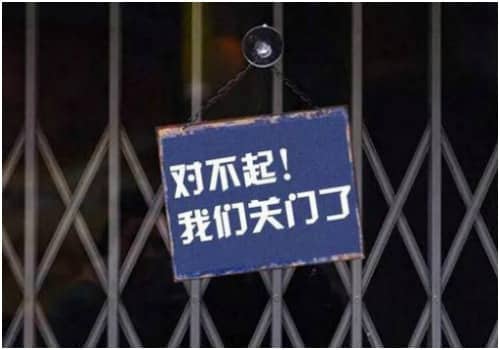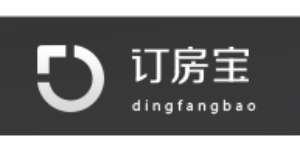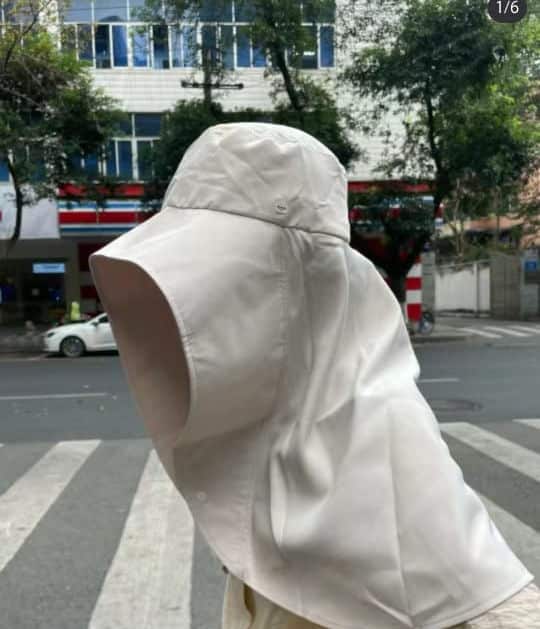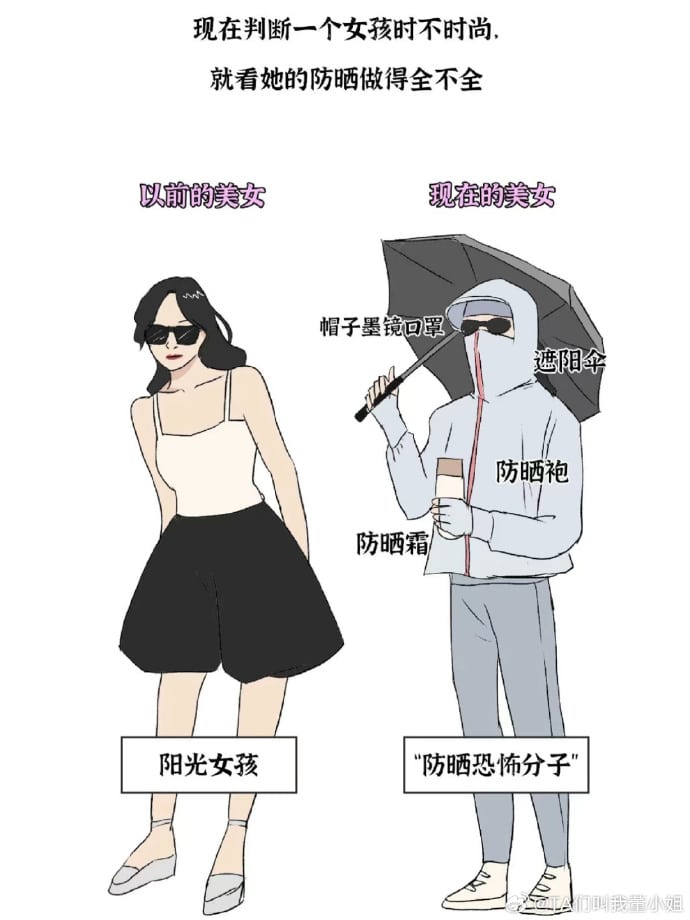China Brands, Marketing & Consumers
China’s Growing e-Commerce Graveyard: These Companies Already Failed in 2017
“When there’s enough wind, even a pig can fly” (当风来了, 猪也会飞起来) does not hold true for all online businesses.
Published
7 years agoon

PREMIUM CONTENT
China’s e-commerce market is a dog-eat-dog world, with new companies popping up every day, while older ones are throwing in the towel. How (not) to make it in China’s crazy world of e-commerce has become a hot topic of discussion on Chinese social media. What’s on Weibo takes a look at 3 big – once successful – Chinese online companies, and why they failed in 2017.
It is still early in the year, but already some big online companies have exited China’s chaotic world of e-commerce. The release of an ‘e-commerce dead list’ (#2017电商死亡名单#) became top trending on Chinese social media on February 22, and triggered discussions on the status-quo of the market.
“One by one they collapse, one by one they pop up,” one netizen (@逛吃秦皇岛) says. With an ever-growing Chinese online population and the world’s largest e-commerce market, more companies seek to join, hoping to find a goldmine. Instead, many of them soon end up on the e-commerce graveyard. The popular idea about China’s e-market that “when there’s enough wind, even a pig can fly” (当风来了, 猪也会飞起来) does not seem to hold true for all online businesses.
Their collapse does not necessarily mean the end – for many, it is just a new beginning. “This whole business is like gambling,” one Weibo commenter responds. Another micro-blogger says: “E-commerce companies all soon become like conventional businesses. The large online companies are just too strong. It is easy to join [the market], but hard to survive.”
Let’s take a look at 3 big companies that have already collapsed this year, and what experts say goes wrong in their approach to the Chinese online market.
“China’s 2017 e-Commerce Dead List”
Along with other Chinese media, China’s influential online e-commerce magazine Ebrun.com recently released a list of big companies that have closed their doors this year. We have selected the 3 biggest ones.
1. Dingfangbao 订房宝

Business: Online Hotel Bookings

With the slogan “You only sleep ten hours, why would you spend all your money for the day on it?” (只睡十小时,为何要花整天的钱), Dingfangbao was an up-and-coming online hotel booking site (app + website) selling high-class hotel rooms at low prices, focused at offering clients a luxurious room for the night.
The company started in late 2014 with its own formula that allowed customers to search for available hotel rooms after 6 pm. Through the Dingfangbao app and site, four and five-star hotels in big cities such as Beijing, Shanghai, Guangzhou, and Shenzhen could offer their rooms at competitive prices if they were not occupied or reserved by 6 pm. A win-win situation: Dingfangbao users could get a top room for a cheap price, and hotels wouldn’t be left with empty hotel rooms.
The Dingfangbao service (Dingfangbao literally meaning ‘booking treasure’) was especially aimed at business travelers who won’t arrive at their hotels until the evenings due to late meetings and leave again early in the morning.
With Japanese nude model/(adult) film actress Sola Aoi (苍井空) as their company ambassador, it seemed that Dingfangbao was also aiming at luring customers to luxurious hotels at nighttime for other purposes – similar to the ‘love hotels’ in Japan.

Japanese sexy actress Sola Aoi was Dingfangbao’s spokesperson.
Dingfangbao had a promising take-off in 2014, with various fundings and an initial angel investment of 6 million RMB (±870K$), followed by second- and third-round funding of a total of 13 million RMB (±1.9M$) in 2015 and 2016.
But on 27 January 2017, Dingfangbao announced that it would be stopping its services. CEO Sun Jianrong (孙建荣) told the media that although there certainly is a market for the Dingbaofang formula, the frequency with which its clients used these services was too low and not enough to cover their operational costs.
On Weibo, the company still has around 19000 followers. Sola Aoi, who has a staggering 17 million fans on her Weibo page, announced on February 8 that she would step down as the company’s spokesperson. A day later, the company officially closed its doors, although its website is still live at the time of writing.
2. Greenbox 绿盒子

Business: O2O Children’s Clothing

Online trendy children’s clothing brand Greenbox (绿盒子) was a success story when it first entered China’s O2O (online-to-offline) retail market in 2010. The company was already established by businesswoman Wu Fangfang (吴芳芳) years before, but it made a conscious shift from offline to e-commerce when Wu realized the potential of middle-class moms spending more time shopping for their kids on the internet.
In 2010, Greenbox received two rounds of funding from Trust Bridge Partners (TBP) of 20 million RMB (3M$), and of 100 million (14.5M$) from DCM. Children clothing brands such as Miss de Mode, M.I.L. Boy, Jenny Bear, and a special Disney brand all belonged to Greenbox, which soon was named one of China’s top 10 e-retailers.
Greenbox tapped into the children’s clothing at the right time, as this retail segment has become especially booming business over the past few years. Together with the surge in other children-related products, there has been a shift to bigger sales of these ‘non-traditional products’ that show that China’s ‘Mummy Economy’ (妈妈经济) has become increasingly more relevant.

Wu Fangfang, the founder of Greenbox.
Soon after the brand was established, it became one of the most popular children’s clothing brands (ranking no.1 for three years in a row) on Alibaba’s online malls Tmall and Taobao. But Greenbox was not solely sold through Alibaba; it was also available through other online shopping platforms such as JD.com and Dangdang. The brand also had its own shop on WeChat.
In 2015, Greenbox started opening up physical stores besides its online ones. It had around 100 (flagship) stores in China’s first-tier cities, solely focused on online sales for the second- and third-tier cities. Was the company taking on more than it could? According to some Chinese media, the brand was “blindly expanding” and growing too fast, too soon, which led to recurring financial difficulties throughout the years. Their financial problems severely worsened in 2016, as the children’s clothing became increasingly competitive. In January 2017, the brand finally announced its bankruptcy.
On Weibo the brand still has 76000 fans, but it has been inactive for months. Some netizens are surprised that the well-known brand has quit, and wonder what this means for the future of other successful ‘Taobao brands.’
3. An Home 安个家

Business: Online Real Estate

An Home (安个家) was established in April of 2015. Headquartered in Shanghai, it was independently funded (10 million RMB, 1.5M$) by CEO Liang Weiping (梁伟平). Its business offered online real estate services with a focus on its mobile app, attempting to rival with traditional real estate services.
Different from offline realtors, An Home aimed to be an online (mobile) platform where its home-seekers, homeowners, and consultants could connect with each other, making the process of buying and selling a house less time-consuming and more efficient.
An Home was a promising start-up for which Liang Weiping gathered a team coming from prosperous companies such as Tencent and Alibaba.
But by late December of 2016, Liang admitted to Chinese media that the company was facing financial hardships, and that they had not succeeded in finding the right way to compete with their offline rivals through online channels. As booming as all corners of China’s e-commerce market might seem, people might not be ready for O2O when it comes to real estate.
One of the reasons for its failure was that eventually, no matter online or offline, access to a large number of houses is the key to winning over the real estate market – and it was precisely this issue where the company feel behind compared to the more traditional channels.
Late 2016, CEO Liang sent out a letter to all of its staff that An Home had to halt operations due to financial difficulties. The company has now closed its doors.
What Can We Learn from the Graveyard Companies?
The aforementioned online companies are not the only ones who did not make it this year. Bollain Home Textile (帛澜家纺天猫店), founded in 2012 and selling bedding and home textiles through over 50 online stores in China, has collapsed after running behind approximately 16 million RMB (2.3M$) in its payments to suppliers and staff.
Online recruitment company Job Tong (周伯通招聘), established in 2013 as a major social recruitment platform and even receiving a 28 million RMB investment from NetEase, also went down earlier this year – its online competitors, including lagou.com, liepin.com, and zhipin.com, simply grew too strong.
“Even the most clever housewife cannot cook without rice”
And then we have not even mentioned foreign brands such as Lotte and others that closed their doors this doors in the highly competitive Chinese e-market.
So what is the lesson to be learned from these start-up failures? Of course, there is not one answer.
But Chinese e-commerce guru Wang Yongjun (王勇军), who has over 2,5 million fans on his Weibo account (@老高电商圈子), thinks he knows what China’s e-commerce start-ups need.
Wang runs a large networking group called the ‘Laogao Club’ for online entrepreneurs in China that are active on Taobao, Tmall, JD.com, etc, and in response to the ‘2017 failing e-commerce list’, published a blog on February 22 in which he gives some main points on how to succeed in this dog-eat-dog e-commerce world.

Mr. Wang, founder of the Laogao Club, explains how businesses can become successful on platforms such as Taobao or JD.com.
According to Wang’s article (in Chinese), which received many views on Weibo on February 22, building up an online community is key for any e-commerce business in China.
“Even the most clever housewife cannot cook without rice”, Wang argues, seeing an online following as the key ingredient to any online-based business. Drawing in communal media followers costs time and energy – haste makes waste.
The ‘guru’ says that online businesses can’t just gather their following by simply arranging a KOL (Key Opinion Leader) or online celebrity (see the first Dingfangbao example) for their brand; it is something a brand has to do themself, since they are the core that needs to attract fans.
“No matter how good you are, or how good your product is, it is worth nothing without an online community.”
“No matter how good you are, or how good your product is, it is worth nothing without an online community,” Wang writes. In a time when netizens are drowning in the information that is presented to them, it is essential that brands and companies are precise in targeting their relevant audiences and shooting their arrows in the right place.
Wang strongly advises companies to set up the right online environment that suits their target audience, and to pick the right timing to market their messages. Sometimes brands are lucky when their campaign goes viral, but mostly it is about smart strategy.
Before converting your assets into cash, it is important to continue to be valuable to followers and give them a reason to stay. Wang stresses that it is never a good idea to start the money-making machine too soon – you first need to make sure you have a steady and loyal group of online followers that is attached to your brand/company.
“Don’t drown the pond to get at the fish.”
“Don’t be overhasty, don’t drain the pond to get to the fish” (不能操之过急、竭泽而渔), is one of the messages of the Laogao Club for their online entrepreneurs. You can only transform your brand and starting making money once your ‘fans’ trust your brand/company enough and feel connected to its ‘flavor.’
Keeping up the quality of your services and products, and always making sure it brings more than just a ‘bargain’, it is therefore key to survive in the fiercely competitive Chinese e-commerce market.
Reading from the Laogao Club’s road to e-success, we could draw the conclusion that Dingfangbao had not worked enough on creating its own communal following of trusting and loyal fans before attempting to converting its assets into cash. An Home jumped into the pond before there were any fish at all, and Greenbox went ahead of itself and became too hasty to expand.
“If you enter the pit, be cautious”, some netizens respond on Weibo: “It is risky business.”
“There are too many people who don’t understand and think they are already running an e-business simply because they openened an online company. It looks good on paper, but in reality, it’s nothing,” another person writes.
– By Manya Koetse
Follow @WhatsOnWeibo
©2017 Whatsonweibo. All rights reserved. Do not reproduce our content without permission – you can contact us at info@whatsonweibo.com.
Manya Koetse is the founder and editor-in-chief of whatsonweibo.com. She is a writer, public speaker, and researcher (Sinologist, MPhil) on social trends, digital developments, and new media in an ever-changing China, with a focus on Chinese society, pop culture, and gender issues. She shares her love for hotpot on hotpotambassador.com. Contact at manya@whatsonweibo.com, or follow on Twitter.

Also Read
China Books & Literature
Why Chinese Publishers Are Boycotting the 618 Shopping Festival
Bookworms love to get a good deal on books, but when the deals are too good, it can actually harm the publishing industry.
Published
2 months agoon
June 8, 2024By
Ruixin Zhang
JD.com’s 618 shopping festival is driving down book prices to such an extent that it has prompted a boycott by Chinese publishers, who are concerned about the financial sustainability of their industry.
When June begins, promotional campaigns for China’s 618 Online Shopping Festival suddenly appear everywhere—it’s hard to ignore.
The 618 Festival is a product of China’s booming e-commerce culture. Taking place annually on June 18th, it is China’s largest mid-year shopping carnival. While Alibaba’s “Singles’ Day” shopping festival has been taking place on November 11th since 2009, the 618 Festival was launched by another Chinese e-commerce giant, JD.com (京东), to celebrate the company’s anniversary, boost its sales, and increase its brand value.
By now, other e-commerce platforms such as Taobao and Pinduoduo have joined the 618 Festival, and it has turned into another major nationwide shopping spree event.
For many book lovers in China, 618 has become the perfect opportunity to stock up on books. In previous years, e-commerce platforms like JD.com and Dangdang (当当) would roll out tempting offers during the festival, such as “300 RMB ($41) off for every 500 RMB ($69) spent” or “50 RMB ($7) off for every 100 RMB ($13.8) spent.”
Starting in May, about a month before 618, the largest bookworm community group on the Douban platform, nicknamed “Buying Like Landsliding, Reading Like Silk Spinning” (买书如山倒,看书如抽丝), would start buzzing with activity, discussing book sales, comparing shopping lists, or sharing views about different issues.

Social media users share lists of which books to buy during the 618 shopping festivities.
This year, however, the mood within the group was different. Many members posted that before the 618 season began, books from various publishers were suddenly taken down from e-commerce platforms, disappearing from their online shopping carts. This unusual occurrence sparked discussions among book lovers, with speculations arising about a potential conflict between Chinese publishers and e-commerce platforms.
A joint statement posted in May provided clarity. According to Chinese media outlet The Paper (@澎湃新闻), eight publishers in Beijing and the Shanghai Publishing and Distribution Association, which represent 46 publishing units in Shanghai, issued a statement indicating they refuse to participate in this year’s 618 promotional campaign as proposed by JD.com.
The collective industry boycott has a clear motivation: during JD’s 618 promotional campaign, which offers all books at steep discounts (e.g., 60-70% off) for eight days, publishers lose money on each book sold. Meanwhile, JD.com continues to profit by forcing publishers to sell books at significantly reduced prices (e.g., 80% off). For many publishers, it is simply not sustainable to sell books at 20% of the original price.
One person who has openly spoken out against JD.com’s practices is Shen Haobo (沈浩波), founder and CEO of Chinese book publisher Motie Group (磨铁集团). Shen shared a post on WeChat Moments on May 31st, stating that Motie has completely stopped shipping to JD.com as it opposes the company’s low-price promotions. Shen said it felt like JD.com is “repeatedly rubbing our faces into the ground.”
Nevertheless, many netizens expressed confusion over the situation. Under the hashtag topic “Multiple Publishers Are Boycotting the 618 Book Promotions” (#多家出版社抵制618图书大促#), people complained about the relatively high cost of physical books.
With a single legitimate copy often costing 50-60 RMB ($7-$8.3), and children’s books often costing much more, many Chinese readers can only afford to buy books during big sales. They question the justification for these rising prices, as books used to be much more affordable.
Book blogger TaoLangGe (@陶朗歌) argues that for ordinary readers in China, the removal of discounted books is not good news. As consumers, most people are not concerned with the “life and death of the publishing industry” and naturally prefer cheaper books.
However, industry insiders argue that a “price war” on books may not truly benefit buyers in the end, as it is actually driving up the prices as a forced response to the frequent discount promotions by e-commerce platforms.
China News (@中国新闻网) interviewed publisher San Shi (三石), who noted that people’s expectations of book prices can be easily influenced by promotional activities, leading to a subconscious belief that purchasing books at such low prices is normal. Publishers, therefore, feel compelled to reduce costs and adopt price competition to attract buyers. However, the space for cost reduction in paper and printing is limited.
Eventually, this pressure could affect the quality and layout of books, including their binding, design, and editing. In the long run, if a vicious cycle develops, it would be detrimental to the production and publication of high-quality books, ultimately disappointing book lovers who will struggle to find the books they want, in the format they prefer.
This debate temporarily resolved with JD.com’s compromise. According to The Paper, JD.com has started to abandon its previous strategy of offering extreme discounts across all book categories. Publishers now have a certain degree of autonomy, able to decide the types of books and discount rates for platform promotions.
While most previously delisted books have returned for sale, JD.com’s silence on their official social media channels leaves people worried about the future of China’s publishing industry in an era dominated by e-commerce platforms, especially at a time when online shops and livestreamers keep competing over who has the best book deals, hyping up promotional campaigns like ‘9.9 RMB ($1.4) per book with free shipping’ to ‘1 RMB ($0.15) books.’
This year’s developments surrounding the publishing industry and 618 has led to some discussions that have created more awareness among Chinese consumers about the true price of books. “I was planning to bulk buy books this year,” one commenter wrote: “But then I looked at my bookshelf and saw that some of last year’s books haven’t even been unwrapped yet.”
Another commenter wrote: “Although I’m just an ordinary reader, I still feel very sad about this situation. It’s reasonable to say that lower prices are good for readers, but what I see is an unfavorable outlook for publishers and the book market. If this continues, no one will want to work in this industry, and for readers who do not like e-books and only prefer physical books, this is definitely not a good thing at all!”
By Ruixin Zhang, edited with further input by Manya Koetse
Independently reporting China trends for over a decade. Like what we do? Support us and get the story behind the hashtag by subscribing:
Spotted a mistake or want to add something? Please let us know in comments below or email us. First-time commenters, please be patient – we will have to manually approve your comment before it appears.
©2024 Whatsonweibo. All rights reserved. Do not reproduce our content without permission – you can contact us at info@whatsonweibo.com.
China Brands, Marketing & Consumers
Chinese Sun Protection Fashion: Move over Facekini, Here’s the Peek-a-Boo Polo
From facekini to no-face hoodie: China’s anti-tan fashion continues to evolve.
Published
2 months agoon
June 6, 2024
It has been ten years since the Chinese “facekini”—a head garment worn by Chinese ‘aunties’ at the beach or swimming pool to prevent sunburn—went international.
Although the facekini’s debut in French fashion magazines did not lead to an international craze, it did turn the term “facekini” (脸基尼), coined in 2012, into an internationally recognized word.

The facekini went viral in 2014.
In recent years, China has seen a rise in anti-tan, sun-protection garments. More than just preventing sunburn, these garments aim to prevent any tanning at all, helping Chinese women—and some men—maintain as pale a complexion as possible, as fair skin is deemed aesthetically ideal.
As temperatures are soaring across China, online fashion stores on Taobao and other platforms are offering all kinds of fashion solutions to prevent the skin, mainly the face, from being exposed to the sun.

One of these solutions is the reversed no-face sun protection hoodie, or the ‘peek-a-boo polo,’ a dress shirt with a reverse hoodie featuring eye holes and a zipper for the mouth area.

This sun-protective garment is available in various sizes and models, with some inspired by or made by the Japanese NOTHOMME brand. These garments can be worn in two ways—hoodie front or hoodie back. Prices range from 100 to 280 yuan ($13-$38) per shirt/jacket.

The no-face hoodie sun protection shirt is sold in various colors and variations on Chinese e-commerce sites.
Some shops on Taobao joke about the extreme sun-protective fashion, writing: “During the day, you don’t know which one is your wife. At night they’ll return to normal and you’ll see it’s your wife.”

On Xiaohongshu, fashion commenters note how Chinese sun protective clothing has become more extreme over the past few years, with “sunburn protection warriors” (防晒战士) thinking of all kinds of solutions to avoid a tan.




Although there are many jokes surrounding China’s “sun protection warriors,” some people believe they are taking it too far, even comparing them to Muslim women dressed in burqas.

Image shared on Weibo by @TA们叫我董小姐, comparing pretty girls before (left) and nowadays (right), also labeled “sunscreen terrorists.”
Some Xiaohongshu influencers argue that instead of wrapping themselves up like mummies, people should pay more attention to the UV index, suggesting that applying sunscreen and using a parasol or hat usually offers enough protection.
By Manya Koetse, with contributions by Miranda Barnes
Spotted a mistake or want to add something? Please let us know in comments below or email us. First-time commenters, please be patient – we will have to manually approve your comment before it appears.
©2024 Whatsonweibo. All rights reserved. Do not reproduce our content without permission – you can contact us at info@whatsonweibo.com.
Subscribe

Weibo Watch: The Future is Here

“Bye Bye Biden”: Biden’s Many Nicknames in Chinese

Enjoying the ‘Sea’ in Beijing’s Ditan Park

A Triumph for “Comrade Trump”: Chinese Social Media Reactions to Trump Rally Shooting

Weibo Watch: Get Up, Stand Up

The Tragic Story of “Fat Cat”: How a Chinese Gamer’s Suicide Went Viral

“Old Bull Eating Young Grass”: 86-Year-Old Chinese Painter Fan Zeng Marries 36-Year-Old Xu Meng

A Brew of Controversy: Lu Xun and LELECHA’s ‘Smoky’ Oolong Tea

Singing Competition or Patriotic Fight? Hunan TV’s ‘Singer 2024’ Stirs Nationalistic Sentiments

Zara Dress Goes Viral in China for Resemblance to Haidilao Apron

Weibo Watch: The Battle for the Bottom Bed

About the “AI Chatbot Based on Xi Jinping” Story

China’s Intensified Social Media Propaganda: “Taiwan Must Return to Motherland”

Weibo Watch: Telling China’s Stories Wrong

Saying Goodbye to “Uncle Wang”: Wang Wenbin Becomes Chinese Ambassador to Cambodia
Get in touch
Would you like to become a contributor, or do you have any tips or suggestions? Get in touch here!
Popular Reads
-

 China Insight3 months ago
China Insight3 months agoThe Tragic Story of “Fat Cat”: How a Chinese Gamer’s Suicide Went Viral
-

 China Music4 months ago
China Music4 months agoThe Chinese Viral TikTok Song Explained (No, It’s Not About Samsung)
-

 China Digital10 months ago
China Digital10 months agoToo Sexy for Weibo? Online Discussions on the Concept of ‘Cābiān’
-

 China Arts & Entertainment12 months ago
China Arts & Entertainment12 months agoBehind 8 Billion Streams: Who is Dao Lang Cursing in the Chinese Hit Song ‘Luocha Kingdom’?






